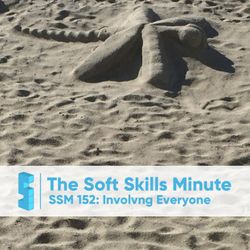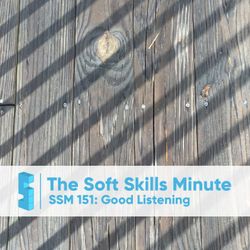Share

Serious Soft Skills
Podcast 13: Interview Part 2 on How Customer Service, Cultural Awareness Stoke Success
•
Exploring the role customer service as a soft skill plays in the success of an organization om an interview with customer service expert Neal Woodson.
Introduction
Dr. Tobin Porterfield (‘0:21'): Welcome to Episode 13 of Serious Soft Skills. I am your host, Dr. Tobin Porterfield. Today we will have the second of a two-part interview that my cohost Bob Graham conducted with Neal Woodson. Neal has 35 years of experience across a range of environments, including 19 years in the event technology industry. Neal currently serves as director of service excellence for PSAV, where he helps management and line-level team members collaborate in driving service excellence. Last week, in Episode 12, Bob and Neal talked about the soft skills encompassed in good customer service and how the customer and employee can both use good soft skills. In today's episode, Bob talk s more with Neal about the value of good customer service to an organization and how it's developed. If you are involved in dealing with customers on any level, I recommend you start with Episode 12.
Automation Isn't an Answer for Customer Service
Bob Graham (‘1:12'): With me is Neal Woodson. I can't wait to get to the second part of this interview. We are going to dig into things a little deeper and he has a lot of great stuff to say. We have this business model that everyone is striving for — less interaction with the consumer. Do it all over the Internet. Automation, automation, automation. So as you say, the people are the company, we seem to be flying in the same direction in a lot of cases. What do you think happens when companies want more automation?
Neal Woodson (‘1:35'): It's causing a lot of problems. This is a pretty heavy subject with a million tentacles to deal with. Over the last 30 years, we have had an increase in depression and an increase in teen suicide, and I now this is a big stretch from what you just said, but I will go back to the fact that we are social animals and social creatures. We have been working over the last 30-35 years hard, without even knowing it, to become more individualistic and not connected. Connected in a virtual sense, but that's not the same kind of connection.
To be connected electronically, is not at all the same as being connected on a human level.
It Always Comes Back to People
Woodson (‘2:43'): I'll give you an example. I fly in airports a lot. I fly all over the country. When I walk in airports, I see more of the tops of people's heads than their faces. Their heads are buried in a phone. When I walk by that phone, nine times out of 10, they are looking at inane stuff. They are looking at Facebook or Instagram. It's not even interesting. They are just flipping through it. They are bored. We have lost a lot of connections. This isn't generational. We see it in all generations. We crush the millennials and say it's all their fault. But it's not. They happen to be better at it. They happen to be more ensconced in it. But that's because we didn't, I didn't, grow up with the technology and they did. That's a problem
This lack of connection among people is a problem.
Woodson (‘3:35'): I would say to every one of those companies that you so well explained that they are more electronic, every single one of them has a way to reach a human. You look at Amazon and think that's probably the quintessential company. Go online, buy something, which is great for some things. But when you have to buy something that is really technological, I will bet at some point, you go somewhere and talk to a person and ask them what they would buy. We want to know at the gut level what you think. I don't want to look at a bunch of stats or a bunch of numbers.
More episodes
View all episodes

SSM 158: Details, details, details
02:05|Tobin Porterfield discusses the soft skill of paying attention to details.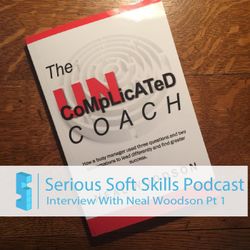
75 Coaching With Neal Woodson Part 1
15:45|Bob Graham interviews author, trainer, and expert coach Neal Woodson Part 1
SSM 157: Defaulting
03:11|Bob discusses the power of defaulting to YES rather than immediately saying NO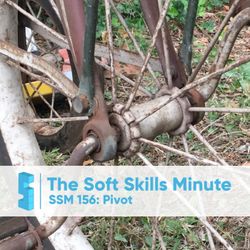
SSM 156: Pivoting
03:02|Bob Graham discusses how that you need to know when to alter you agenda. Even what works for years may need to change for long term success.

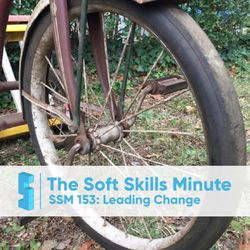
SSM 153: Leading Change
03:08|If you are ready for a change - you might have to lead it - on today's podcast